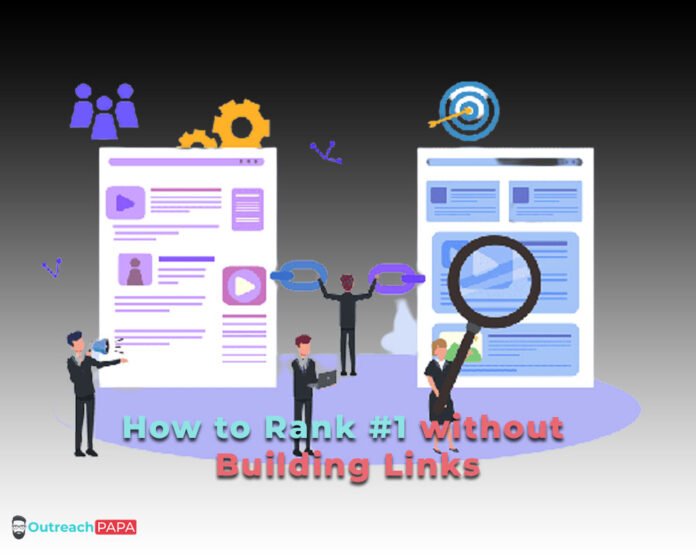As a website owner or online business, you may be aware of the importance of building backlinks to your site to improve your search engine rankings. However, link building can be a time-consuming and costly process, and it may not always be the most effective way to rank higher in search results. In this article, we will explore some alternative strategies to rank #1 in search engine results without relying on link building.
How To Rank #1 Without Building Links
Search engine optimization (SEO) is the practice of optimizing your website to rank higher in search engine results pages (SERPs) for relevant search queries. While there are numerous factors that affect search engine rankings, link-building has traditionally been one of the most effective strategies to improve rankings.
However, link-building is not the only way to achieve higher rankings in search engines. In fact, there are several other strategies that can help you rank #1 without building links. Here are some of the most effective ones:
Content is king
One of the most important factors in SEO is the quality of your website’s content. Google’s algorithms prioritize sites that provide high-quality, relevant, and informative content that satisfies user intent. By focusing on creating valuable content that addresses the needs of your target audience, you can improve your rankings without relying on link-building.
To create high-quality content that ranks well in search results, consider the following tips:
- Conduct keyword research to identify the most relevant and high-traffic search terms in your niche
- Develop content that addresses the needs and interests of your target audience
- Use headings, subheadings, and bullet points to break up your content and make it more readable
- Incorporate images and videos to make your content more engaging and visually appealing
- Aim for a high level of readability by using short paragraphs, simple language, and clear sentence structures
- Ensure that your content is original, well-researched, and free of spelling and grammatical errors
On-page optimization
On-page optimization refers to the process of optimizing individual pages of your website for specific keywords and search terms. By optimizing your on-page factors, you can improve your site’s relevance and authority in the eyes of search engines, which can help you rank higher in search results.
Some of the most important on-page factors to optimize include:
- Title tags and meta descriptions: These are the HTML elements that appear in search results and provide a brief summary of your page’s content. Make sure to include your target keywords in these elements to improve your rankings.
- Header tags: Use H1, H2, and H3 tags to structure your content and make it more readable for both users and search engines.
- URL structure: Make sure your URLs are clear, and concise, and include your target keywords where appropriate.
- Content optimization: Optimize your content by including your target keywords in your headings, subheadings, and body text, but be careful not to over-optimize or use spammy tactics.
Technical Optimization
In addition to on-page optimization, technical optimization refers to the process of optimizing the technical aspects of your website to improve its performance and user experience. While technical optimization may not directly impact your search engine rankings, it can indirectly improve your rankings by providing a better user experience, which can increase engagement and reduce bounce rates.
Some important technical optimization factors to consider include:
- Website speed: Make sure your site loads quickly, as slow loading times can negatively impact user experience and search engine rankings.
- Mobile-friendliness: With the majority of searches now conducted on mobile devices, it’s important to ensure that your site is optimized for mobile users.
- Site architecture: Ensure that your site is well-structured and easy to navigate, with clear links and a logical hierarchy
- Security: Ensure that your site is secure with HTTPS encryption and other security measures to protect user data and build trust with search engines.
By optimizing these technical factors, you can improve the overall user experience on your site, which can lead to increased engagement and improved search engine rankings.
Conclusion
While link building has traditionally been one of the most effective strategies for improving search engine rankings, it is not the only way to achieve success in SEO. By focusing on high-quality content, on-page optimization, and technical optimization, you can improve your rankings without relying on link building.
Remember, the key to success in SEO is to create a website that provides value and meets the needs of your target audience. By following the strategies outlined in this article, you can improve the user experience on your site, increase engagement, and ultimately rank higher in search engine results pages. So start optimizing your website today and watch your rankings soar!




